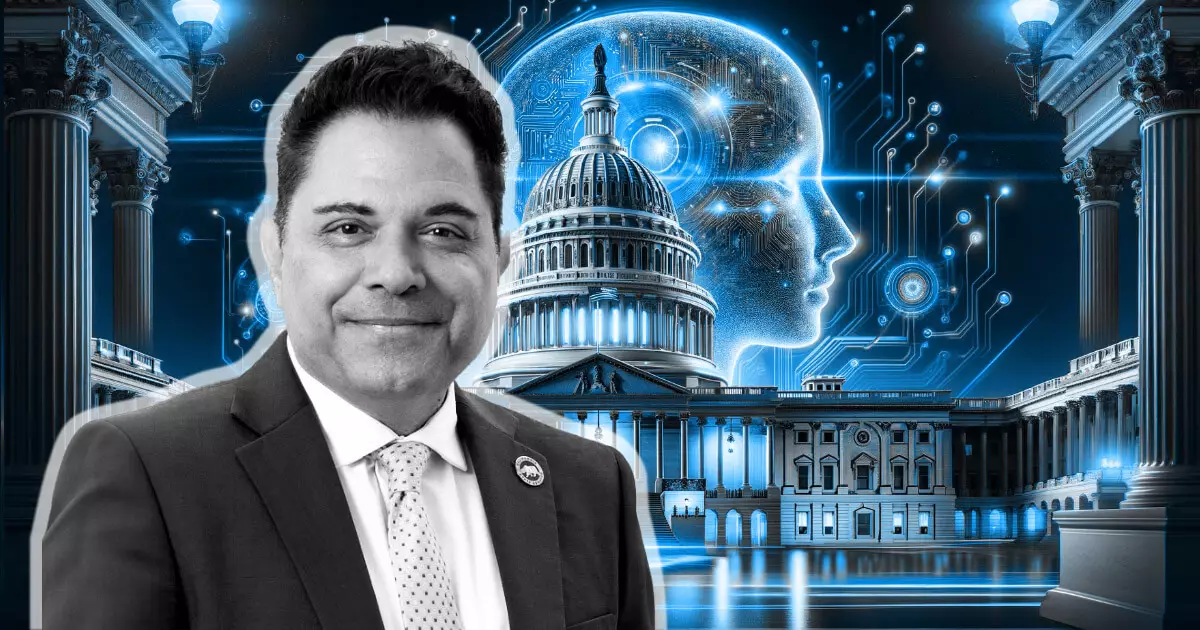In a bid to harness the immense potential of artificial intelligence (AI) while ensuring its safe and responsible use, Senator Steve Padilla (D-San Diego) has introduced two new bills, Senate Bills 892 and 893, to establish a robust and ethical AI framework in California. The proposed legislation marks a significant step forward in addressing the dual nature of AI as a source of promise as well as challenges. Senator Padilla emphasizes the need to learn from past regulatory failures in the tech industry, particularly in the realm of social media, and prevent a similar disaster in AI governance. This article delves into the details of the proposed bills and their implications for AI regulation and development in California and beyond.
AI is widely regarded as the most transformative technology since the advent of the Digital Age. It offers immense benefits across various sectors and has the potential to shape the future in profound ways. However, the unchecked integration of AI into daily life also poses significant risks. Therefore, it is imperative to establish comprehensive safeguards and standards to ensure the safe and responsible use of AI.
Support from Experts
Legal and AI experts, including Karl Manheim, Professor Emeritus at Loyola Law School, have voiced their support for Senator Padilla’s initiative. Manheim highlights the existing “regulatory vacuum” in AI development and commends the proposed bills for positioning California as a leader in AI safety and innovation. Former National Security Advisor Robert C. O’Brien suggests that public investment in AI infrastructure is crucial to maintain a competitive edge against countries like China that have already made substantial financial commitments to the AI industry. He also acknowledges that the proposed legislation will lay the foundation for public investments in AI-related infrastructure.
The Provisions of the Bills
Senate Bill 892 focuses on establishing safety, privacy, and nondiscrimination standards for AI services. Under the bill, the Department of Technology will be responsible for developing and enforcing these standards. Starting from August 1, 2025, the state of California will be prohibited from entering into contracts with AI service providers who fail to meet the specified standards.
On the other hand, Senate Bill 893 aims to leverage California’s economic influence by treating AI services as a public asset. To achieve this, the bill proposes the creation of the California AI Research Hub in collaboration with academic institutions. The goal of the Hub is to conduct research, development, and deployment of AI for the public benefit, while ensuring privacy and addressing societal risks associated with AI.
Senator Padilla emphasizes the importance of AI as a public good that should benefit everyone in society. He argues that public investments are necessary to prevent monopolistic control over the future of AI. By positioning AI as a public asset and prioritizing its development for the benefit of all, California sets the stage for a more equitable and responsible AI landscape.
The proposed bills will be discussed in the Senate in the upcoming year, potentially setting a precedent for AI regulation and development not only in California but also across the United States and around the world. If enacted, this legislation could serve as a model for other states and countries looking to establish ethical frameworks for AI. By taking proactive steps to govern AI, California aims to ensure that this transformative technology is used in a manner that benefits society as a whole.
Senator Padilla’s proposed legislation, Senate Bills 892 and 893, aims to establish a robust and ethical AI framework in California. These bills recognize the potential of AI while addressing the risks associated with its uncontrolled integration. With the support of legal and AI experts, California seeks to lead the way in AI safety and innovation. By treating AI services as a public asset and implementing comprehensive standards, the state aims to prevent monopolistic control and ensure that AI benefits all of society. The discussion and potential enactment of these bills in the Senate hold promising prospects for AI regulation and development, not only in California but also on a broader scale.


Leave a Reply